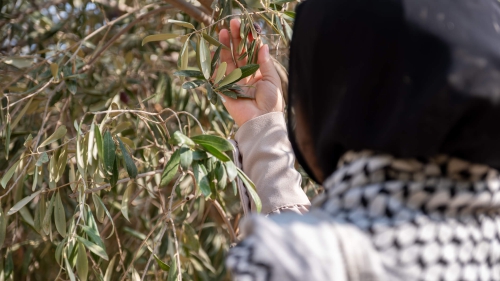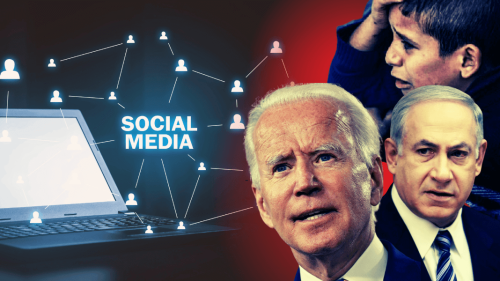Arabs Want Reform, But Not US Help
Before the Bush Administration pushes ahead with plans to promote reform in the Arab world, attention should be given to the results of our latest Arab American Institute/Zogby International (AAI/ZI) poll.
Arabs want reform, but the change they want is more related to quality of life than political issues. And when asked how helpful the United States could be in promoting reform in their countries, they were decidedly cool to US involvement in their internal affairs.
These were two of the findings of a significant new study conducted by ZI in five Arab states. The poll, which surveyed attitudes of 2,600 adult Arabs in Morocco, Saudi Arabia, Jordan, Lebanon, and the United Arab Emirates, asked respondents to evaluate the importance of ten different reform issues and then to indicate how helpful they felt the US could be in assisting their countries achieve each of these reforms.
Overall, the areas viewed as most important, in rank order, included: expanding employment opportunities, improving health care, and improving the educational system. In the middle of the list were internal matters like fighting extremism and protecting civil rights. But at the list's bottom were the more political issues, such as: expanding democracy, promoting political debate, political reform, and advancing women's rights.
It is significant to note, by way of comparison, that resolving the Israeli-Palestinian conflict ranked second in importance overall, right after expanding employment and before improving health care.
What these findings demonstrate is that Arab public opinion wants change, but that their most important issues of concern are structural changes that improve daily life and expand opportunities for personal advancement.
The study finds no substantial difference in the rank order given to these issues when the respondents are compared by age, gender, or educational achievement. Men, for example, rank Israel-Palestine as their primary concern followed by employment, health care, and education. Women, on the other hand, rank employment first followed, in order, by health care, Israel-Palestine, and education.
Both genders also agree that democracy issues, reform, women's rights, and political debate are at the bottom of their list of concerns. Women, not surprisingly, give a somewhat higher score to the issue of expanding women's rights, but still rank it ninth out of ten in overall importance-the same ranking given to this issue by men. Meanwhile, men give a slightly higher score to civil rights, democracy, and reform, but, like women, agree that these issues rank sixth, seventh, and eighth in overall importance.
When compared by age, older Arabs demonstrate greater intensity of concern for Israel-Palestine and civil rights, while younger Arabs show greater concern for women's rights. Nevertheless, both young and old agree on the overall rank order of all issues. Both age cohorts place resolving the Israeli-Palestinian dispute as second in importance, civil rights in sixth place, and women's rights ninth out of the ten issues covered in the survey.
Only minor differences appear when the attitudes of university educated Arabs are compared with those who have not received a degree. More educated Arabs, for example, showed somewhat greater concern with health care and civil rights, while their less educated compatriots gave higher ratings to improving educational opportunities and women's rights. But, overall, the rank order of issue concerns was virtually the same for both groups.
When asked how helpful the US could be in assisting their countries in advancing each of these ten concerns, there was broad consensus that the most significant role the US could play was in resolving the Israeli-Palestinian conflict.
In Lebanon and Morocco, and to a lesser degree, Jordan, there is support for US assistance in expanding employment, improving health care, and improving educational opportunities. On the other hand, there is near universal rejection of any US role in political reform, protecting civil rights, or advancing democracy or women's rights.
The lessons that can be culled from just a preliminary review of the findings of this AAI/ZI study are that Arabs do want change, but the change they want is different that what is being promoted by the more ambitious plans of Western governments. What this survey of Arab opinion reveals is that the most critical first steps to be taken are to grow Arab economies and improve the quality of life and essential services. Finally, Arab opinion seems to be saying that internal political affairs are just that-internal.
With the apparent rejection of outside interference in internal political matters, it would be more useful for supporters of Arab reform to find ways to assist infrastructure development and the expansion of trade and investment in order to promote economic growth. It may well be that successful economic and educational development would lead to the political changes sought by reformers without incurring resentment or resistance. Reform, in any case, must be demand driven and not imposed from outside.
And, it goes without saying that if the US seeks to play a more active role in assisting Arab reform efforts, it should begin by resolving the Israeli-Palestinian conflict. This is what Arab opinion wants from the US. If the US were to deliver in this area, it just might enhance the US's credibility and pave the way for a more active role in being able to advance other reform issues.
Dr. James J. Zogby is the President of Arab American Institute and can be reached at [email protected]
Topics: Civil And Political Rights, Government And Politics, Health
Views: 4722
Related Suggestions
Now draw an arrow near the ethical boundary pointing toward Ideal Behavior and another just inside the Legal Boundary but pointed outwards. Think of these as the position and direction of an individual's behavior. It may well be that the behavior of the person near the criminal boundary would move into criminal behavior with ease if there were no threat of punishment.
Now consider a society that wishes to authorize their leader to ignore the bounds on behavior that even those that consider war acceptable to have declared criminal. (sound familiar) Such a situation would lend truth to the statement that to authorize a power is to authorize its abuse. Especially, when such a society wishes to allow the leader to authorize others to act in what would be considered by moderates as criminal ways. Clearly this is the antithesis of: if power does not create peace and more power create more peace you can neither stand in the presence of God nor approach the thrown. Indeed, such behaviors imply a different activation center, the antithesis of The Most Gracious, The Most Merciful.
The US might well consider that it is its own actions that cause the Muslims to call it "The Great Satan" and not just belligerence.
To a great extent, courage has already been democratized by recent events. The suffragettes showed that they possessed as much courage as the bravest men; this demonstration was essential in winning them the vote. The common soldier in the War needed as much courage as a captain or lieutenant, and much more than a general; this had much to do with his lack of servility after demobilization.
But courage in fighting is by no means the only form, nor prehaps even the most important. There is courage in facing poverty, courage in facing derision, courage in facing the hostility of one's own herd. In these, the bravest soldiers are often lamentably deficient. And above all there is the courage to think calmly and rationally in the face of danger, and to control the impulse of panic fear or panic rage. These are certainly things which education can help to give. And the teaching of every form of courage is rendered easier by good health, good physique, adequate nourishment, and free play for fundamental vital impulses.
ISBN 0-671-20323-1 Why I Am Not a Christian

















